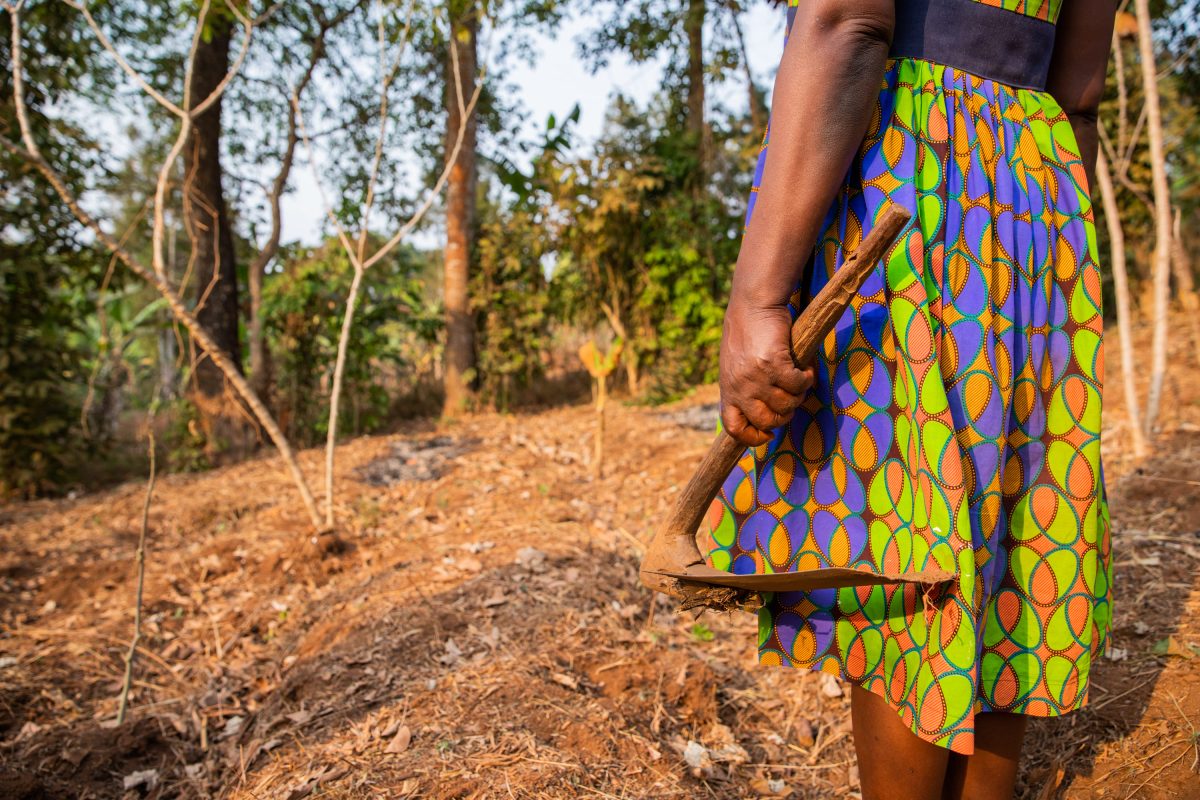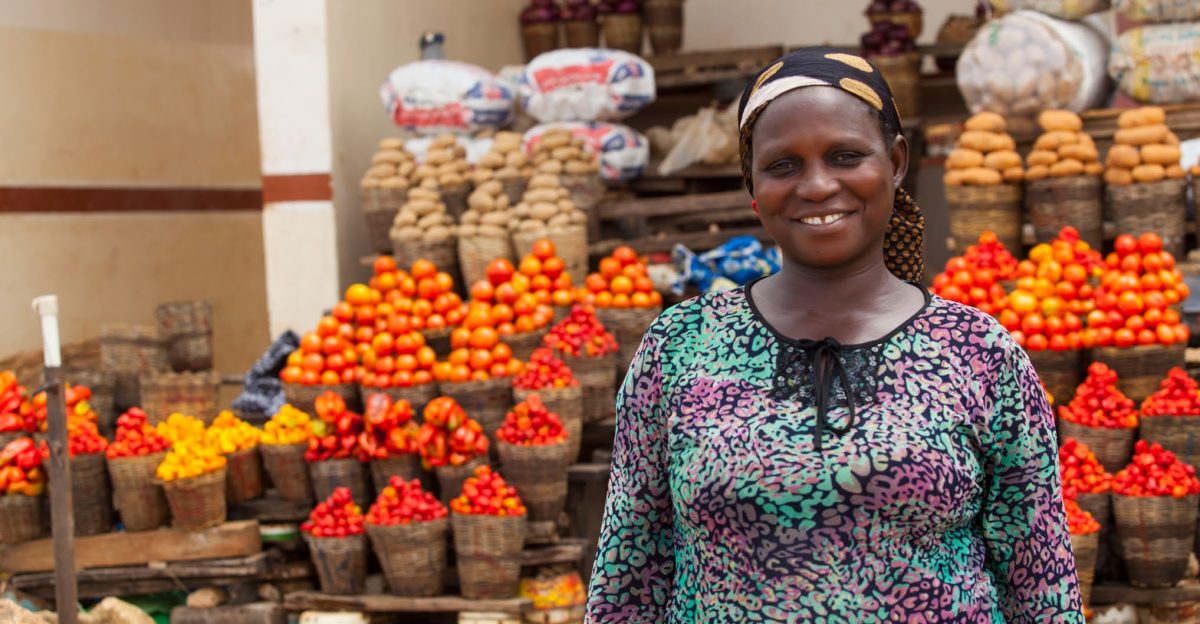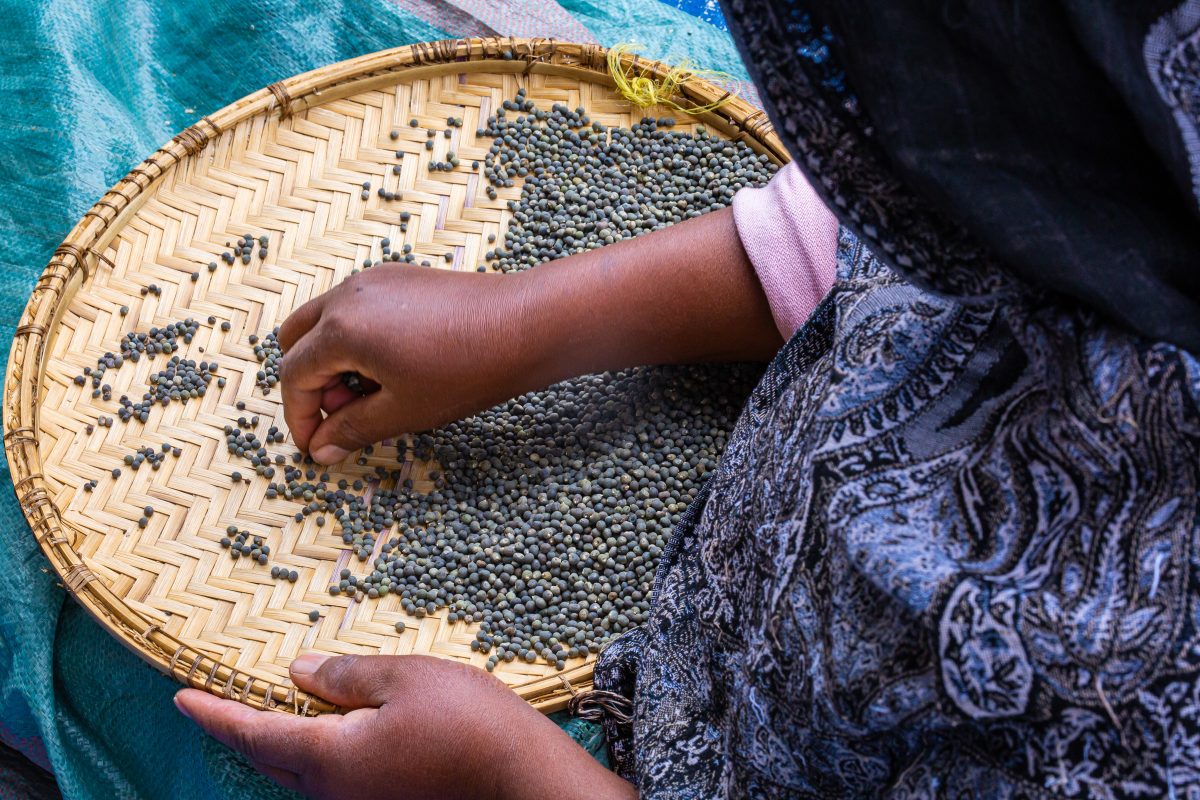Window 1 – Investment in SMEs (Small and Medium Enterprises) and FIs (Financial Intermediaries) is part of the Investing in Women in Burkina Faso programme, a C$16 million programme funded by Global Affairs Canada (GAC).
This fund component includes repayable and non-repayable grants totaling C$7.5 million. The programme will unlock the potential of Burkina Faso’s agricultural sector by financing women-owned and led agribusinesses. It will also de-risk financial intermediaries, enabling them to facilitate access to finance for women-owned and led SMEs focused on climate-smart agriculture to benefit low-income households.
The programme aims to:
- Strengthen the private sector’s commitment to women as economic actors.
- Increase private and public sector investment in local small and medium-sized enterprises (SMEs) owned and managed by women and other types of local enterprises that create economic opportunities for women.
- Reduce systemic gender inequalities that hinder women’s effective economic participation in high environmental impact markets and the private sector more generally.
-
Fund Objectives
- Improve access to finance for Small and Medium Enterprises and local Financial Institutions or Financial Intermediaries that create economic opportunities and facilitate access to finance for women, for example, by promoting job creation, strengthening economic fabrics, supporting input/product/service providers along value chains where women are involved, or providing loans and capacity building to women.
- Provide targeted technical assistance for the business development of local women-owned enterprises and build their capacity for gender mainstreaming.
- Promote and raise awareness of the economic, social, and environmental benefits of investing in women in Burkina Faso.
- Provide incentives to encourage the sustainable and widespread adoption of climate-smart practices.
-
Areas of intervention
Funding is available to:
- SMEs, local private companies owned and managed by women and operating commercially in Burkina Faso, with proven business links to women entrepreneurs and/or women-owned businesses.
- Financial Institutions and Financial Service Intermediaries (FIs) that work with women or intend to work with women by designing financial products that specifically address the challenges women face in accessing finance.
Although funding is not limited to specific value chains, the priority ones are shea, rice, groundnuts, soya, and poultry.
-
Eligibility
To be eligible, applicants must meet the following criteria:
- Be a local private sector company OR be a financial institution or financial intermediary (microfinance institution, village savings and credit association, etc.) operating or intending to operate in Burkina Faso.
- Only local private sector companies that can demonstrate that they are at least 51% owned by women OR that they have a majority female management and a majority female representation among employees, suppliers of raw materials, or distributors of products and/or services are eligible.
- Demonstrate a commitment to match the AECF contribution based on the ratios indicated for each contribution (as set out in section 7 below).
Request funding in the form of a grant and/or a repayable grant, or a combination of both, within the specified range.
-
- Comply with the basic laws and regulations of the country, including tax and social compliance laws.
- Comply with international laws on human rights, labor standards, and environmental management.
- Demonstrate a commitment to gender equality and women’s empowerment in business conduct.
- Demonstrate clear integration of climate change mitigation or adaptation into their product or service offering or the intention to do so with the funding requested.
- Be legally registered and physically located in Burkina Faso at the time of contract signature.
- Have been in business for at least two (2) full financial years at the time of application.
- MUST NOT be involved in any act of corruption. The AECF requires that the applicant (including its employees, subcontractors, and suppliers) is not engaged in offering to a third party or seeking, accepting, or promising from a third party, for itself or any other party, any gift, remuneration, compensation or advantage of any kind whatsoever which could be construed as an illegal or corrupt practice.
- MUST NOT be associated with activities prohibited by the governments of Burkina Faso, such as terrorism, money laundering, or a list prohibiting trade with certain entities (IFC (International Finance Corporation), USAID, UN, EU (European Union), and any other network), in accordance with United Nations Security Council Resolutions adopted under Chapter VII of the Charter of the United Nations.
All applicants and associated parties will be subject to screening against regulations such as https://sanctionssearch.ofac.treas.gov/, https://www.worldbank.org/debarr , World-Check, EU Sanctions List, etc.
-
-
- Allow for prior verification of eligibility (due diligence, social documents, accounting documents) and regular verification (through quarterly visits or unannounced on-site visits).
- Demonstrate added value; see details in section 11 below.
-
-
Sectors of activity
Eligible companies must demonstrate that their offerings are accessible and affordable, directly benefit women, and promote the adoption of environmentally friendly and gender-responsive technologies, products, or services.
To be eligible for funding, proposed initiatives must demonstrate an ambition to address the systemic challenges that prevent women from participating more effectively in the private sector. Examples of business models and activities that will be targeted include (but are not limited to)
- Market aggregators that provide reliable and new outlets for women or women-owned businesses to increase their profits and incomes.
- Information and media companies that provide market information services to women and women-owned businesses through traditional, digital, and other innovative platforms that meet needs.
- Electronic/digital technology services (markets, finance, technology and knowledge) linking stakeholders to products and services of women-owned SMEs.
- Processing and/or manufacturing companies and/or market intermediaries that create economic opportunities for women through job creation and/or as suppliers of products/services.
- Production and distribution models that support local entrepreneurship, including transforming women-owned individual enterprises into micro-enterprises and the growth of SMEs, local MFIs, and women’s groups.
- Business models that increase women’s access to and use of innovative environmental and climate-friendly solutions and technologies.
- Business models that offer climate-friendly solutions and technologies at household, production, transport, and processing levels in value chains.
- Business models that provide women entrepreneurs and smallholders with access to technologies and services such as mechanization, refrigeration, drying, processing, or distribution.
For financial institutions and financial service intermediaries (FIs):
- Provide innovative financial products and services to women and women-owned enterprises.
- Preference will be given to solutions that integrate the entire value chain of a sector or product (e.g. from production to retail), without excluding sectors or types of activities.
-
Funds available
Applicants must submit a funding application justifying the need for the business and/or idea to be funded, the amount of funding, and the project’s duration.
The funding, which is provided in the form of soft loans and grants, must be used for a specific project, such as the particular project, such as the introduction of new services or products, the expansion of an existing business, or the expansion/replication of a new market.
Subject to strict compliance with the eligibility criteria (see section 7 on matching contributions), investee companies can apply for various matching contributions.
Investing companies can apply for a range of funding depending on their stage of development:
1. For SME soft loans
- A minimum allocation of CAD 50,000
- and up to CAD 750,000
2. For non-repayable grants to eligible SMEs
- Allocation of a minimum of CAD 50,000
- and a maximum of CAD 750,000
For SMEs, the range of funding, which may be a mix of grants and loans or 100% loans, is between a minimum of CAD 50,000 and a maximum of CAD 750,000.
The following conditions must be met in strict compliance with the Counterparty Criteria (see Section 7 on Counterparty Contributions).
Financial Institutions (FIs) and Financial Services Intermediaries (FSIs) may apply for a range of funding depending on their level of development:
- For concessionary FI loans
-
-
- Allocation of a minimum of CAD 150,000
- and a maximum of CAD 750,000
-
2. For non-repayable grants to these FIs
-
-
-
- Allocation of a minimum of CAD 100,000
- and a maximum of CAD 500,000
-
-
For Financial Institutions and Financial Service Intermediaries (FIs), the funding range, which can be a mix of grants and loans or 100% loans, is between a minimum of CAD 100,000 and a maximum of CAD 1,000,000.
Funding is available in the form of non-repayable grants (disbursed in Canadian dollars) and repayable grants (disbursed and repaid in West African CFA francs). SMEs and Financial Institutions (FIs) are eligible for both non-repayable and repayable grants. Applicants are expected, but not required, to request a combination of repayable and non-repayable grants.
Non-repayable grants will be targeted at high-risk beneficiaries: small, early-stage, highly innovative, or transformative projects and components of projects that are not expected to generate a financial return in the short term.
Repayable grants will be targeted at low-risk beneficiaries—larger, well-established companies and components of projects that have a clear potential to generate an immediate financial return. They will be interest-free, unsecured, and treated in the same way as other debt instruments. Repayments will be made in stages to ensure full repayment at the end of the project.
Financial institutions are expected to apply for non-repayable grants to design and implement innovative financial products and repayable grants to reduce the risk of their loan portfolio. Applicants are free to propose financing mechanisms tailored to their needs to provide access to women entrepreneurs and women-owned businesses—full capitalization of the loan portfolio, full or partial guarantee mechanisms, etc.
Funding is subject to matching criteria (see section 7 on matching contributions). Enterprises should apply for funding based on their development stage and capacity to absorb the proposed project. The company’s absorptive capacity will be assessed during the application process, and the funding granted may be less than requested or may take a different form.
-
Matching Contribution
AECF will require the applicant to make a matching contribution to the funding provided to demonstrate its interest and commitment.
This applies to investee companies:
- The funding provided must have a minimum grant to equity ratio of 1:0.5 (100% grant / 50% equity).
- In exceptional circumstances, the AECF will require a lower matching contribution (1:0.25) from highly innovative or high-impact women-owned and women-led businesses requesting smaller tickets of less than C$200,000.
- For investee companies, matching contributions, which can be in cash, can also be made in kind (up to a maximum of 75% of their match for highly innovative companies).
For financial institutions and financial services intermediaries:
- The funding provided must have a minimum grant/equity ratio of 1:1 (100% grant / 100% equity).
- Financial Institutions and Financial Services Intermediaries are expected to match the capitalisation funds with at least 100% equity.
-
Desired socio-economic impact
The business models presented must demonstrate how they achieve and sustain social impact in their target markets. Specifically, this means the number of households served by the product, service or combination, the improvement of women’s incomes, the inclusiveness and transformative potential of women’s role in value chains, the stimulation of market growth and the involvement of women-owned micro, small and medium enterprises in the targeted value chains.
Companies should formulate their strategy to achieve the following objectives
- Include women in the management of the organisation.
- Gender mainstreaming practices in their operations (e.g. women-centred design and gender-disaggregated data collection).
- Demonstrable benefits to women in terms of increased time available for other activities, programme flexibility, improved working environment and health, reduced drudgery and increased household purchasing power.
- Women-led supply chains, demonstrating the involvement of women micro and small business promoters as key actors in the supply chain and the potential opportunities for developing such women-led product/service delivery activities with SMEs.
- Qualitative indicators related to the empowerment of women and youth (e.g. ability to own assets, access to credit, use of existing women’s development structures to increase access to climate-smart technologies in rural and peri-urban communities).
- Demonstrate the existence of an end-user financing mechanism or strategy that enables target communities with low or irregular incomes to access improved climate-smart technologies, practices and services.
- Projects must be environmentally sound and the promotion of climate-smart solutions is mandatory. Where necessary, environmental impact assessments and mitigation measures approved by the relevant regulatory authorities must be obtained.
- Throughout the funding period, companies must demonstrate that they are promoting concrete sustainable development outcomes in their target communities and markets.
Progress towards these goals will be measured by
- The number of new jobs created by the company (60% for women).
- The volume of products or services purchased from women entrepreneurs or women-owned SMEs, in Canadian or US dollars.
- The volume of inputs and/or services sold to women and women-owned SMEs.
- Number of poor and vulnerable people reached through awareness programmes on social standards, by-products and services.
- Number of eligible women-owned enterprises that expand their activities.
-
Selection criteria
Each applicant will be evaluated and scored on the following criteria:
- Present a commercially viable business model. The proposal must be technically sound and consistent with the activities described in section 3 (Focus Areas) above. It must specify how performance will be measured and evaluated, with all indicators, targets and milestones agreed.
- The contractor, resource technician(s) or company must provide satisfactory references. Where possible, past performance references should be provided.
- The proposal should include the CV(s) of key personnel with the training and experience required for the technical nature of the proposed project.
- The proposal should indicate the methods and degree of coordination with local government and participating communities.
- If a product is to be supplied, it must be certified in accordance with global standardisation procedures (eligibility of national standards) and/or supplied by a certified product manufacturer, clearly identified as being of acceptable product quality.
- Demonstrate a history of revenue from its users for existing products/services/demonstrated success in at least one market.
- Demonstrate sound financial health, including two years of audited financial accounts, established financial management processes and procedures, and dedicated financial management staff – both at headquarters and in-country where appropriate.
- Demonstrate investment relationships/potential access to counterpart funds (based on an agreed ratio), enabling additional and complementary funding.
- Demonstrate how counterpart funds will be made available, including details of when funds will be available.
- Demonstrate the capacity of the management team to implement the proposed activity/project (adequate internal resources/capacity) – both at headquarters and in-country where appropriate.
- Demonstrate an understanding of the context and culture of the country in which the project will operate.
- Demonstrate how the business model will create and sustain social impact in the target markets (see section 8), i.e. how AECF funding will be used to secure commercial financing.
- In their business proposals, companies MUST describe their environmental impact and waste management policies and procedures and demonstrate compliance with global and national environmental management regulations. Applicants should provide an overview of potential waste in value and supply chains and explain how they intend to manage it. They should indicate the added value or benefit of their proposal compared to traditional practice.
- Demonstrate how gender analysis has influenced the design of the product/service and how it will impact on the project.
- Indicate the risks and threats to the implementation of the project and the methods that would be used to mitigate these risks.
-
Investment principles
The AECF’s Investment Principles, set out below, will guide all investment decisions and will be used to evaluate proposed ideas and guide final award decisions.
Investment Principles
- Private sector demand: The AECF is demand-driven, market-sensitive and harnesses the initiative and delivery capacity of the private sector to deliver economic and social outcomes for the poor.
- High impact models: funded projects must demonstrate high social impact on key impact indicators as outlined in the Monitoring and Evaluation (M&E) and Performance Measurement Framework.
- Systemic change: funded projects must demonstrate the potential for economic and social impact in favour of the poorest that goes beyond the immediate impact of the project and changes the way the market operates.
- Address market failures or demonstrate added value: The AECF finances projects that are constrained by market failures in access to finance in the context of the specific markets in which they are to be implemented.
- Risk sharing: The AECF shares risks with private companies. The underlying principle is that the beneficiaries of the funds take more risk than the AECF. In practice, business beneficiaries make financial contributions to funded projects/activities as this maximises the mobilisation of resources and the commitment of applicants to successful implementation. Corporate financial contributions may take the form of equity (debt or shareholder contributions), commercial or concessional loans and/or grants from other funding sources.
- Competition: The AECF’s funding (grant) application process and associated terms and conditions are made public to ensure that all eligible organisations have an equal opportunity to compete for available funds and to ensure transparency.
- Portfolio approach: The AECF seeks to build a portfolio of investments that is diversified in terms of risk, geographical and sectoral spread, and economic, social and commercial impact.
- Do no harm: projects funded must consider potential conflict and risk factors to minimise potential harm and avoid negative social, economic and environmental impacts.
- Business sustainability: projects funded must demonstrate innovation and potential for sustainability.
-
How to Apply
Click on the link below to submit your application.
Applications will be open from August 7, 2024 at 9:00AM GMT to September 7, 11:59 PM GMT.
Window 1: Termsheet for applicants

Programme Brief

Frequently Asked Questions

